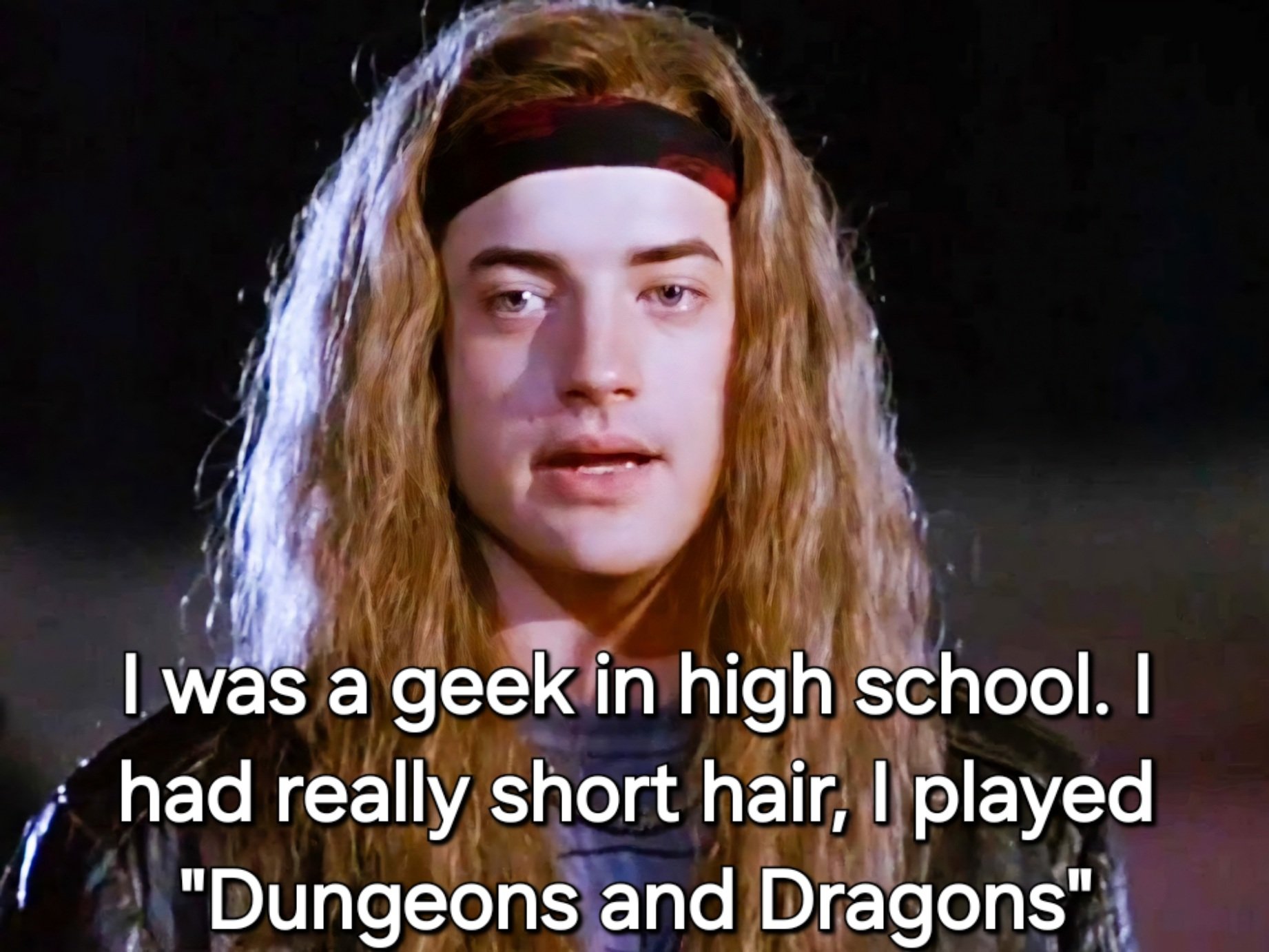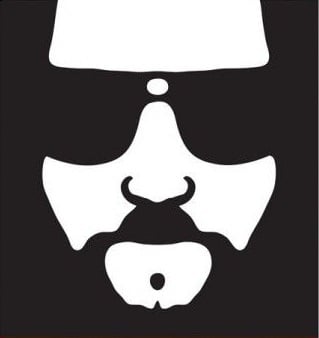Remember to take shitposts seriously, it’s what the cool kids are doing
Anarchism isn’t the absence of rules but the absence of authority. Some anarchist ideas even replace the centralized authority figure with rules that apply to everyone and of cause free association so you are not forced to follow them and can move on instead
Without some kind of authority, how can those rules be enforced?
Decentralized authority
Rules are enforced by the collective not by a small minority essentially. Things like direct democracy doesn’t contradict with their philosophy. Essentially middle management and above in all aspects of financial and political life would be abolished.
Direct democracy doesn’t only not contradict with anarchism, it is a core tenet of anarchism. After all, how do we get rid of unjustified hierarchy without creating a hierarchy free from rulership?
There is a whole debate within anarchism whether to use the term democracy or not. People on both sides of this semantical debate will have identical utopias but call them differently. Zoe Baker has a video essay about that on YouTube.
I like the term Direct Democracy since it shows my disagreement with parliamentary democracy while still using a term that’s regarded as positive. “Our democracy isn’t direct enough” will resonate with more people than “Democracy bad, anarchy good”.
core * tenet
Thanks
What Monopoly on violence
Publicly shun people. You’re a rule breaker? You’ve been shunned by society and people who associate with you will be known associates of the shunned.
And further to that we have voluntary prison. Essentially, if you’re guilty of something and want to have the benefits of this society, you need to agree to a loss of some privileges - in whatever form is necessary. If you won’t, well good luck surviving when nobody will trade with you or let you live near them.
If you won’t agree to that, you can leave, but the full details of your trial and conviction are public and your decision to leave will be broadcast, so our neighbours know to look out for you.
That means trials will need to be fair, and seen to be fair, or else it will be easy to ask for asylum. Prisoners need to be fairly treated, or they will try their luck in a nearby place.
But if someone chooses to leave and is just trying to run from the consequences of their actions, well they’ll have a hard time being accepted anywhere else.
So what do you do to deal with the situation we see in modern states with an actual centralised “monopoly” on violence: Organised criminal environments that live off exploiting the rest of society?
We’re talking about people that don’t care if you shun them, because they have their own environment, with their own hierarchy and set of rules, and they’re willing to use violence to exploit the rest of society to make a living.
I’m not really sure what question you’re asking. What situation specifically are you talking about? Are we dealing with capitalism from the inside or from the outside? Are you asking about a theory of change, or about how an anarchist region deals with its state neighbours?
These all have answers, similar but different, but I don’t really want to spend the effort answering every permutation of the question I could imagine without knowing what you mean.
I’m asking: In a hypothetical anarchist society, how do you deal with organised criminal environments that live off exploiting other members of society, and who refuse to follow rules or rulings created by the consensus of those that don’t want to be exploited?
I’m pointing out that these groups exist and have existed in more or less every society of decent size, so they must be factored in somehow. I’m also pointing out the “voluntary prison, or else you’ll be excluded from society” likely doesn’t work, as these are people that have already accepted living a life on the side of the rest of society, within their own environment.
Okay, so you’re talking about an antisocial group that is attempting to prefigure a society of domination within the existing anarchist society.
Well, assuming they’ve established themselves as a continuing threat, the short answer is: violence. We use defensive violence against their encroachment until their group crumbles, which shouldn’t be hard since by definition most of their members are living a way worse life than they would without their oppressors, and they’re surrounded by examples of people living free.
Hierarchies are fragile. Also, in order to exist, an anarchist society must already solve the problem of how to keep hierarchies from forming.
The voluntary prison idea is a way of dealing with individuals, not organised groups. That’s an entirely different situation.
Short answer: The community.
In small contexts, a mutual understanding is sufficient. There are “Radical Therapy” groups with no central therapist who decides who talks how much but instead have rules like fixed times for each person. I don’t think people will break these rules but exclusion is always an option with very intransigent people.
In bigger contexts like the Commons, people deliberate on their own rules. Minor transgressions will have minor consequences and the worst is – again – exclusion. People are more willing to stick to the rules and watch others if they were part of the process that created the rules. If you want to dive deeper, I remember a podcast episode by SRSLY WRONG and a YouTube video by Andrewism about The Commons or The Tragedy of the Common.
free (dis) association
Peer pressure, self awareness, probably a few others I can’t think of.
More cancel culture over putting all the power to the military and police.
So is Lemmy (the platform) a case of anarchism at work?
it’s an archipelagic confederation, so yes!
That’s a very good question. It’s as anarchist as modern social media gets.
The thing is the moderators. In an anarchist utopia, they would take turns, be recallable and have to justify their decisions.
The last point is true for some instances but not all (think of the vegan cat food debate on .world verses how .ml blocks voices critical of China and Russia).
The other two points – to my knowledge – barely happen. This isn’t a huge problem, as I said, it’s as anarchist as social media comes. But it contains the risk of a centralized power. Sure, you can always leave the instance (even easier than on mastodon where you lose your followers) but this resembles the Libertarian “freedom” to choose your oppressor. Internal equality is very important.
This isn’t to criticize Lemmy. It’s overall very good and as anarchist as realistically and practically possible. But to showcase the anarchist ideal of councils and to spotlight the minor flaws we should be aware of, even if there is no perfect solution.
deleted by creator
I didn’t intend to start the discussion here. You are on lemmy.world. maybe filter “local” and you will see.
Important for this discussion is that the moderators reacted to the criticism and acted upon it.
deleted by creator
Most grass roots societies are like that. It’s “self” ruling so to speak. At least from what I have gathered and read. It’s been awhile since I did deep dive on it.
No just free association. But having no alternatives to legitimate needs, like participating in our civilization’s free speech discourse through the internet, free association doesn’t help. So before the fediverse you were “forced” to associate with reddit/facebook/twitter or have little association at all.
I’m not sure how anarchism would work for a social media platform. Everyone is a mod? Everyone can post anything and can delete anything? 😀
I believe generally as a philosophy anarchism only makes sense as all authority should be challenged and needs to be justified or be abolished. The amount of authority justified and needed might be relative to the level of “enlightenment” of the participants.
You’re literally on the social media closest to anarchy rn.
Or I can set up my own private server where nobody can join, then I can have anarchy, totalitarianism and socialism all at once!
It’s always good to learn something from comments under memes. You make me think about libertarianism that sounds like a different (right wing) take on anarchism.
Well you learned the wrong here, anarchy isnt the absence of authority it’s the absence of hierarchy.
Some systems are clearly hierarchical, capitalism, dictatorship, feudalism.
Now I have a hard time imagining how you would enforce certain laws, or rules without authority.
Authority is usually understood by anarchists as a component of hierarchy. I’d be interested to hear your definition that doesn’t make it hierarchical.
And there are ways of enforcing rules that don’t require authority, like diffuse sanctions, essentially community-based enforcement.
There’s a whole school of anti-carceral justice thought that deals with this.
I’m not sure what makes you think of (right wing) libertarians. I specified the absence of authority. Libertarians are fond of the idea of voluntary contracts – or let’s rather call it voluntary authority – which in effect is never voluntary. You can choose for whom to work but there is a ruling class you have to work for. All you can do is choose your oppressor.
Free association among equals on the other hand is a very common idea among (left/socialist) anarchists and I think very early on. You can choose and leave the community you belong to.
Coercive relationships are adjudicated by the oppressors.
That’s why it’s important to keep the rules non coercive
Anarchism is communism but for intellectuals
I reject your definition and substitute my own. But I won’t tell you!
Well, there is a whole anti intellectual movement within anarchism which stems at least in part from a critique of intellectuals as an elite. That said, there are elitist Marxist and even ML uni professors, but also anarchist ones. I wouldn’t draw the line there.
Anarchists do believe in board game rules. Just that they think that using house rules everyone agrees on is a great idea.
Just that they think that using house rules everyone agrees on is a great idea.
Kinda. The most important part is that if someone disagrees with the house rules, they can choose to disassociate from the house and go somewhere else. There’s no state to say “this open field that’s not utilized is mine, bitch!” and then taze you.
There’s the state neighbouring anarchists who can’t form a state and so probably anarchists exist protected within the borders of some state unless some state respects not a state
However a state cannot acknowledge existence of something that doesn’t exist and has no joint body of commonality. Hence genghis khan moment. A state conquers the ownerless land.
Thus emergents from this Darwinian history are states. Squashing individuality in name of security against genghis khans.
Anarchism remains a purely theoretical thought exercise or a relic of the far past tribes
U r assuming that anarchists would be peaceful n just roll over on their backs to show their tummies to Genghis Khan.
The goal of anarchism is freedom. The existence of a State means no freedom. Thus, anarchist militias unite to fight this threat. A stateless society doesn’t equate an unorganised society.
Good luck being efficient and quick without central command and centralised power. There’s a reason anarchism didn’t survive evolutionary process.
Our economic systems and governing method are direct outcome of evolution. If they will be unfit for the contemporary reality they will die as all things do in nature that we are part of. Strongest and most resilient emerge. So far it’s been liberal democracy but there’s nothing that says this is a permanent victor
Who said there would be no centralised command? It would just be opt out. If an individual/community wanted to opt out of this, there would be noone forcing them to not do so.
As for evolution of political systems due to natural selection, would you say the same about democracy? Stable democracy that we know about today has existed only for the past 300 years. Women got the right to vote this century. If u r living under a dictatorship, would you use the same argument of natural selection to not fight for a democracy?
Who? Well maybe because if there are 1000 of communities all with different ideas then good luck agreeing to any basic thing like who is going to lead that command.
I would like to see this 🤣
Just that they think that using house rules everyone agrees on is a great idea.
I can think of one or two times where house rules were appropriate, and a couple of dozen times where they broke the game. I think that you should only apply a house rule where 1) the game is already broken and 2) you’re reasonably sure that the house rule won’t break it further. It’s good for when an otherwise fun game is ruined by something that the game designers overlooked.
Well, if you were someone playing a game with them, then you can incorporate this. The point is that it’s not obligatory and is based on the people participating
You got me. I’m taking rhis seriously :D Anarchy isn’t against rules. Just against hierarchy’s or unequal distribution of power. Which makes boardgames pretty anarchic since everyone can enforce the rules.
playing board games is a form of self-governance and builds revolution
Is it ironic if they play monopoly?
The whole point of Monopoly is to piss you off about unearned income.
Developed by Quakers as a protest against capitalism. But like everything capitalism fucked that up too
Look y’all we can have decentralised worker cooperative communes with everyone contributing and things distributed as needed for the betterment of everyone’s living conditions rather than the enriching of the few, but only if I get to actually be Hitler in Secret Hitler next time we play!
we had to stop playing Secret Hitler because nobody would play the fascists


Anarchy is not against rules, it’s against rulers.
I want to be a board game rule lawyer one day
Reminded me of This
I actually believe one day we’ll need lawyers and courts for complex virtual reality worlds.
Does anybody know what game that is? It looks cool.
Cones of Dunshire.
Looks like a 3D puzzle with some minis in front of it.
Most board games are based on consensus.
Tankies linking Engels’ “On Authority” in 3…
ITT: Frantic redefinition of what anarchism is. Here it is: https://en.wikipedia.org/wiki/Anarchism
Since this comment means its my turn now, I’ll redefine it into “no rules except the ones I agree with, otherwise GFY” sprinkled with a heavy dose of personal charisma that often clouds objectivity and the complexity of the reality.
That’s not what anarchism is.
I like to call anarchism as neighborliness extended as a political ideology. Consider it libertarianism with a pinch of collectivism
You do it all the time when you organize a group of friends to go to the movies. There is no elected leader.
When Russia invaded Ukraine, they destroyed a lot of public and military comms infrastructure, so the military ended up teaming up with anarchists because they had a decentralized comms going.
Anarchism is compatible with existing political ideologies, however in my opinion works best at small scales.
There’s no elected leader, but there’s an implicit one: the one organizing it, who might just give you the cold shoulder for any number of reasons. Anarchism is best defined in Wikipedia, and isn’t really limited to “small scales”. It is most validated when it is a movement existing within authoritarian states, out of necessity, which is why Revolutionary Action joined into the Revolutionary Committee among other groups, which is what you are referring to.
By itself and out of context, and specially when it manifests in societies that are actually functional, democratic, and with adequate social policies, I favor my own definition, but it can’t really be defined practically and objectively without context. “No (to your Russian) rules except the ones I agree with (Ukrainian national stability and identity), otherwise GFY” sprinkled with a heavy dose of personal charisma is what Revolutionary Action is doing to Russia as it attempts to annex Ukraine, thanks for the example.


















